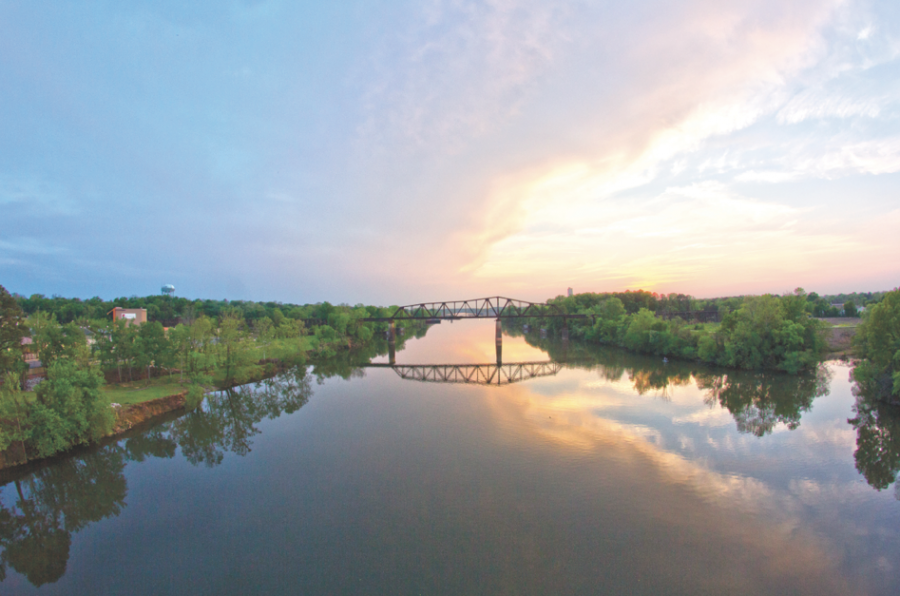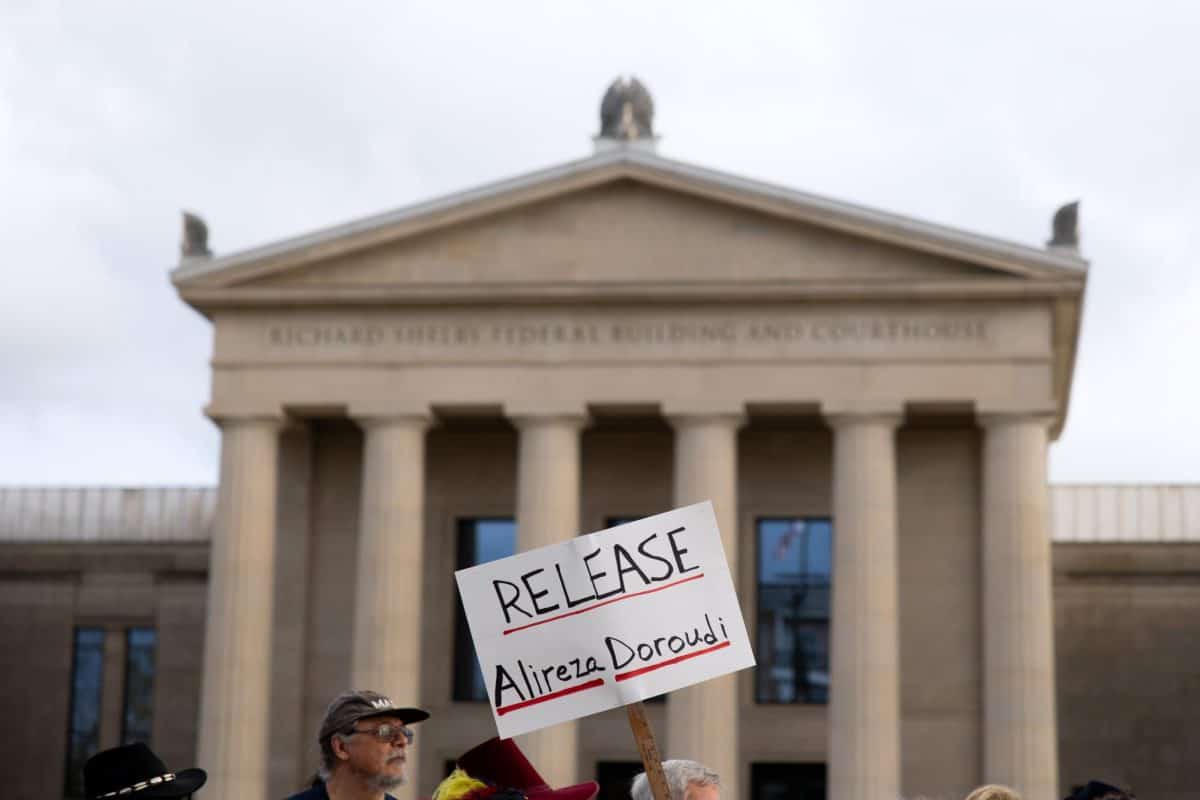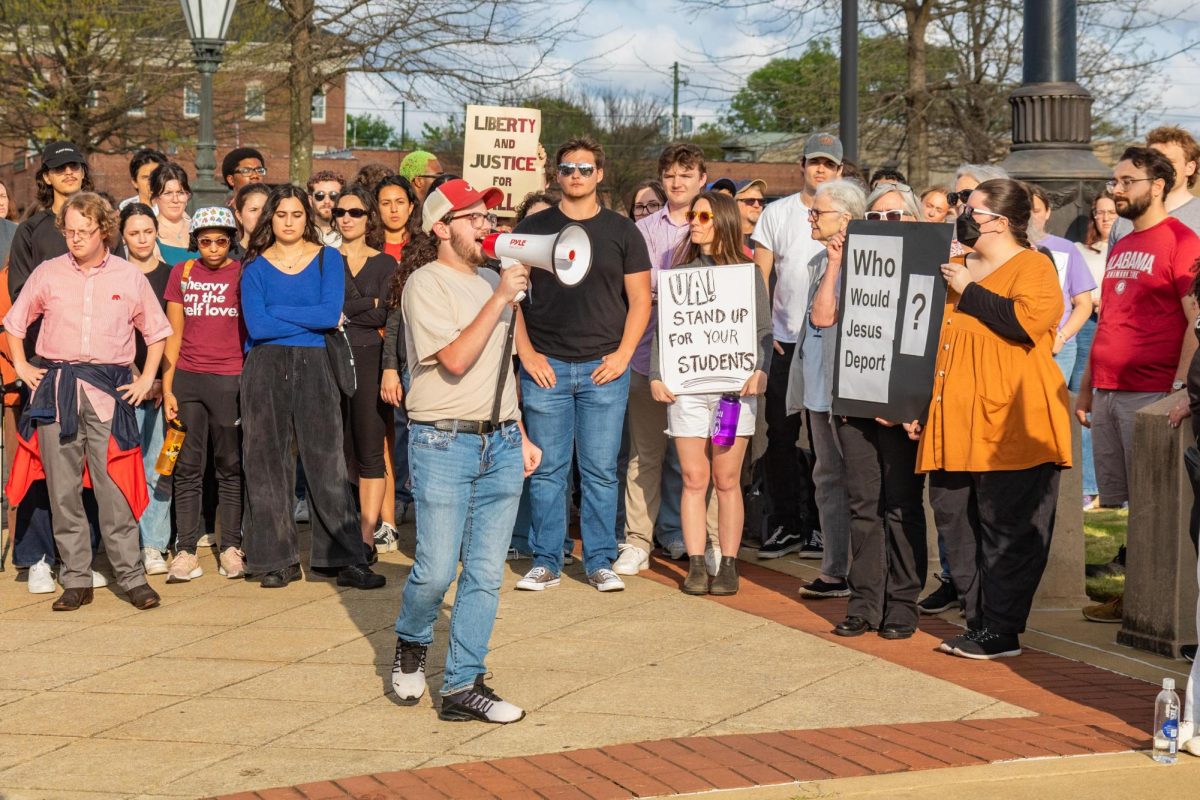American Rivers, a national non-profit organization that works to protect and restore U.S. rivers, announced Wednesday that the Black Warrior River is number seven on its list of most endangered rivers in the U.S., saying the river’s quality of drinking water is “at risk.”
“Drinking water for the greater Birmingham area is threatened by a proposed coal mine on property primarily owned by The University of Alabama,” according to the 2013 report. “Drummond Company’s Shepherd Bend Mine would discharge wastewater into the Black Warrior River’s Mulberry Fork only 800 feet from the Birmingham Water Works Board’s intake, which provides drinking water for 200,000 citizens.”
American Rivers is a national non-profit organization that works to protect and restore U.S. rivers and streams. According to their website, American Rivers has helped protect and restore more than 150,000 miles of rivers through programs like their annual release of the America’s Most Endangered Rivers list.
The seven-state Colorado River tops the 2013 list because of inadequate water supply to meet basin water demands and is followed by the Flint River in second, which flows through the southeastern part of Alabama, for outdated water management.
The Black Warrior’s placement on this national list comes as no surprise for some Alabama residents. For Randy Palmer, childhood memories have been enough to devote six years to fighting to protect the river.
“I went on all my life using the Black Warrior River and all its forks. I hiked up on the Sipsey [a fork watershed of the Black Warrior], camped and canoed up there all my life,” Palmer, a member of Citizens Opposed to the Strip Mining on the Black Warrior River, said. “My father took our family up to the Bankhead forest when we were children, and that’s where we vacationed.”
The possibility of a Shepherd Bend mine has been a point of contention for six years. In 2007, the University submitted a request for proposals “to lease certain surface, mineral rights and fee simple lands to surface mine coal,” just 800 feet from the Birmingham Water Works Board’s intake, which spurred concern among residents.
“After we saw the solicitation to mine Shepherd Bend in the newspaper, we came down to meet with Lynda Gilbert, [UA vice president of financial affairs],” Palmer said. “She told us that while they were sorry and they understood what we were trying to do, this was a done deal.”
Palmer said Gilbert cited Garry Drummond, chairman and chief executive officer of Drummond Company, Inc., a privately owned mining and coal product processing company, as the reason it was a “done deal.” Drummond is a trustee emeritus on The University of Alabama System Board of Trustees.
“That’s what they told us. It was a done deal,” Palmer said. “When we asked why, they said, ‘it’s because we received pressure from Drummond to do this.’”
In a fall 2012 interview with then-University president Guy Bailey, Bailey said no one had approached the University with inquiries about mining on the Shepherd Bend land owned by the Capstone.
“Nobody has actually approached us about mining there,” Bailey said. “My understanding in talking to my predecessors is that we’ve never been approached with that. I don’t think that’s an issue at all.”
Debbie Lane, assistant to the president, said in the fall 2012 interview that the 2007 request had no responses.
“We did a [request for proposals] in 2007 and got no takers, and even if a [request for proposal] is issued that doesn’t mean the University would take bid. It’s a very public process,” Lane said. “We haven’t been asked; we have no plans to do that.”
Although the Drummond company did not bid on the request for proposal, they did pursue permits from the Alabama Department of Environmental Management and in 2010 from the Alabama Surface Mining Commission to mine in the area, according to al.com. Bailey suggested the permits were used to exclude other competitors from pursuing a lease from the University.
“They may have gotten that permit to exclude other people from doing it,” Bailey said. “Sometimes you do something because you don’t want a competitor to do something.”
Charles Scribner, executive director of Black Warrior Riverkeeper, said although Drummond doesn’t have a vote on the Board of Trustees anymore, he believes Drummond’s pressure on administration has prolonged a definitive statement about Shepherd Bend.
“He can’t vote on this issue, but I suspect that one reason why this issue has dragged out so long is because, while there is such widespread pressure on UA to do the right thing from so many different corners, I’m sure they’re also getting some pressure from Drummond who has been actively applying for permits for a mine and fighting for his mine proposal in court,” Scribner said. “He obviously has a big stake in this.”
Scribner also said University administrators continue to be noncommittal about making a definitive statement about the possibility of a mine.
“The UA system keeps emphasizing the word current when they make their statements. They keep saying that over and over again, they have no current plans,” Scribner said. “Try to get a quote from someone there, but I guarantee it’s just going to be the same comment that they keep making for years now, ‘We have no current plans.’”
UA spokeswoman Cathy Andreen said in an emailed statement on Tuesday that the University has not been approached about the land.
“The University has not been approached about leasing or selling the land, and has no current plans to sell or lease the land,” Andreen said.
Scribner said he hopes the national attention the University will receive following American Rivers’ designation will motivate administrators to speak up more clearly.
“The process has really evolved where UA was actively shopping that property, but now they keep saying, ‘we have no current plans to lease or sell our land for mining at Shepherd Bend,’” Scribner said. “I’m glad that they’ve backed off the initial shopping process, but I think it would put the 200,000 people who rely on that particular Birmingham waterworks facility for drinking water at ease if they said that”









